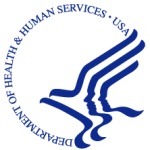- Industry: Government
- Number of terms: 33950
- Number of blossaries: 0
- Company Profile:
United States Department of Health and Human Services, Radiation Emergency Medical Management
One of a pair of organs in the abdomen. Kidneys remove waste from the blood (as urine), produce erythropoietin (a substance that stimulates red blood cell production), and play a role in blood pressure regulation.
Industry:Health care
A compound that is excreted from the body in urine. Creatinine levels are measured to monitor kidney function.
Industry:Health care
Cancer that forms in tissues of and around the eye. Some of the cancers that may affect the eye include melanoma (a rare cancer that begins in cells that make the pigment melanin in the eye), carcinoma (cancer that begins in tissues that cover structures in the eye), lymphoma (cancer that begins in immune system cells), and retinoblastoma (cancer that begins in the retina and usually occurs in children younger than 5 years).
Industry:Health care
A hormone made by the islet cells of the pancreas. Insulin controls the amount of sugar in the blood by moving it into the cells, where it can be used by the body for energy.
Industry:Health care
A type of enzyme that causes other molecules in the cell to become active. Some kinases work by adding chemicals called phosphates to other molecules, such as sugars or proteins. Kinases are a part of many cell processes. Some cancer treatments target certain kinases that are linked to cancer.
Industry:Health care
Having to do with metabolism (the total of all chemical changes that take place in a cell or an organism to produce energy and basic materials needed for important life processes).
Industry:Health care
A fibrous envelope of tissue that surrounds the kidney. Also called Gerota's capsule and Gerota's fascia.
Industry:Health care
